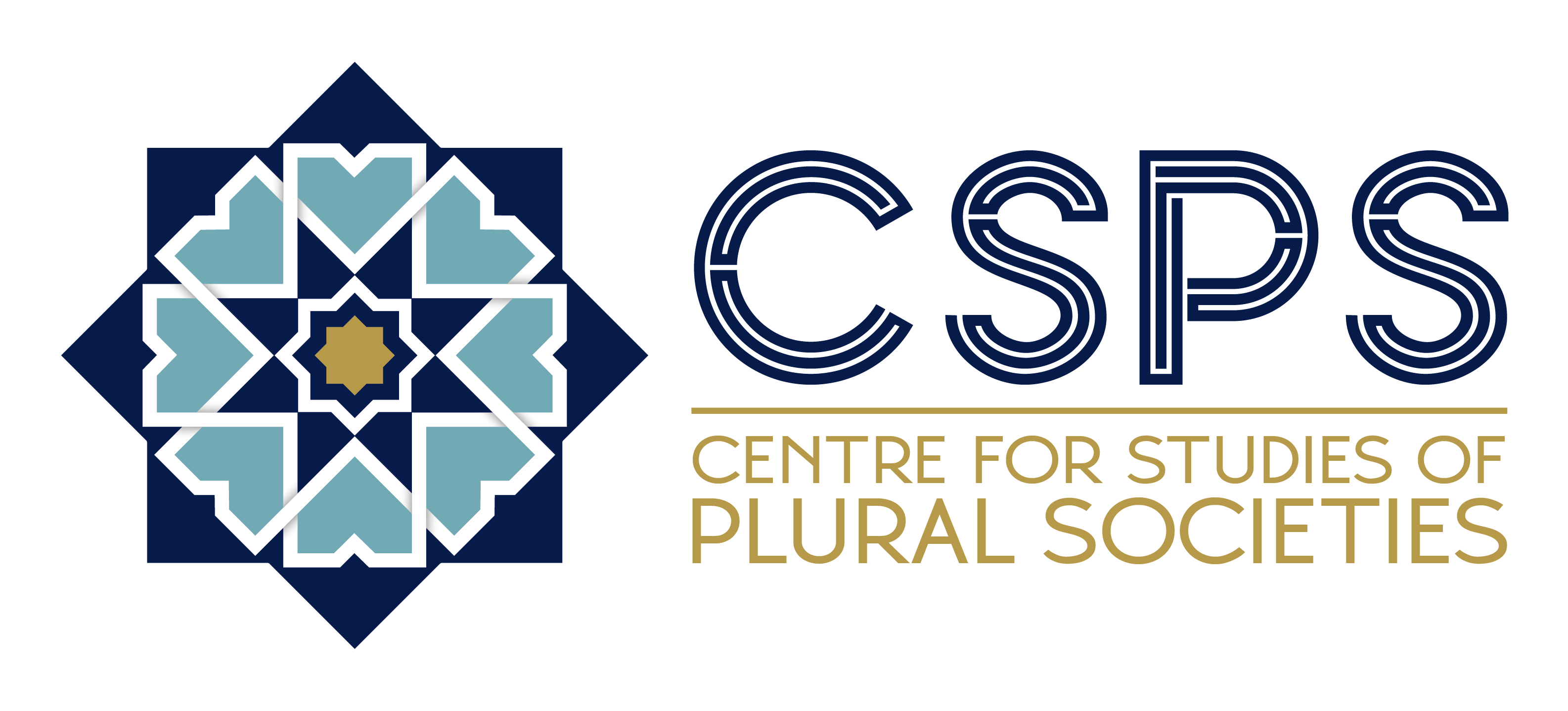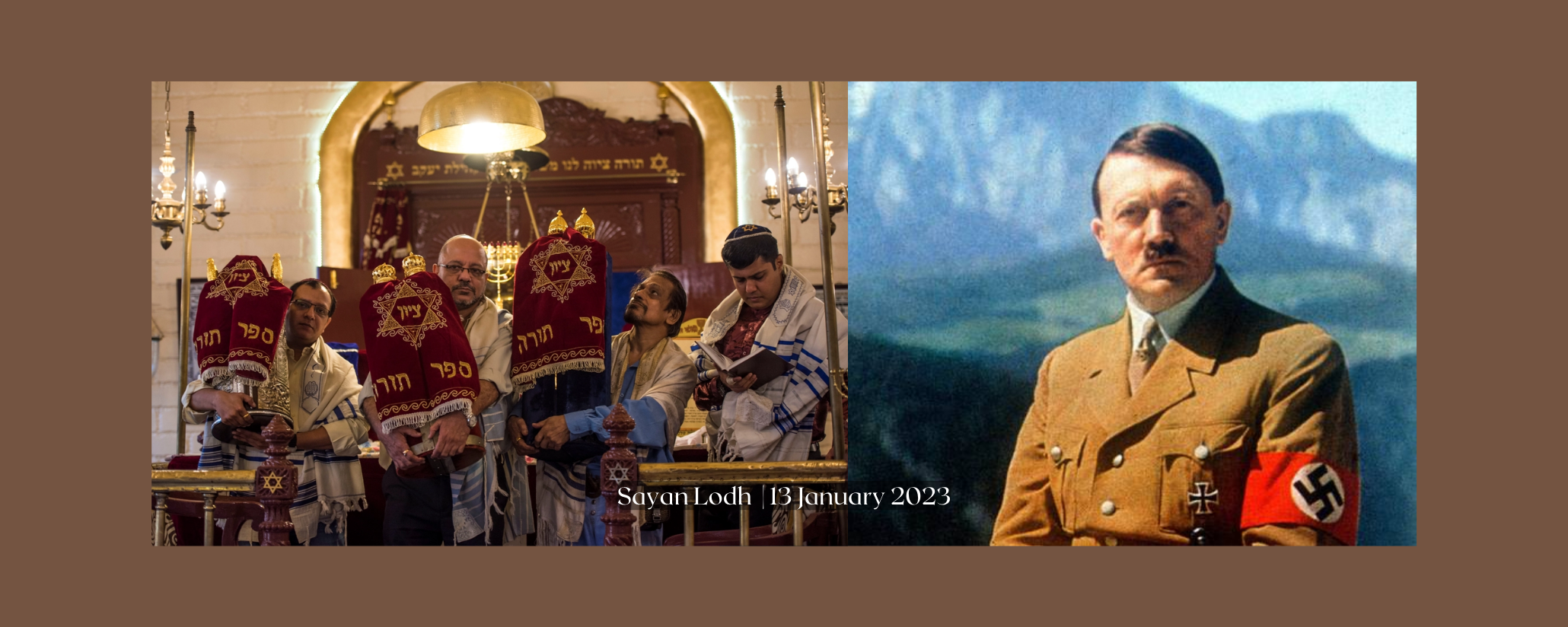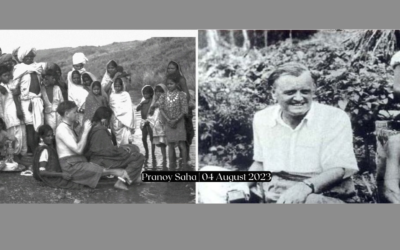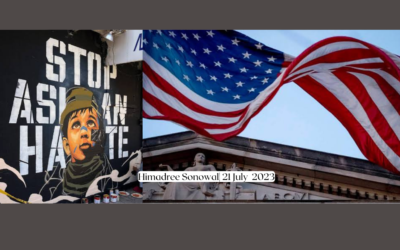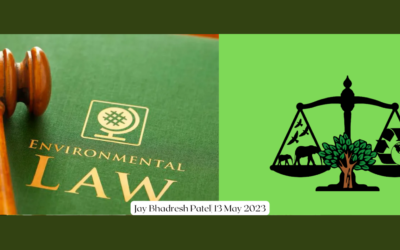The paper discusses three key themes- Antisemitism, Holocaust Denial, and the Perception of Hitler in India. The presence of one of the world’s oldest hatred Antisemitism (Phillips, 2018) and the rising popularity of Hitler combined with Holocaust denial is a warning sign, especially in contemporary Indian society. The rise of a majoritarian right-wing party has threatened India’s multicultural plural fabric through its attempts at polarization. The party uses hatred to keep people divided and diverted from real socio-economic issues.
Antisemitism is a form of racism which refers to the hatred, hostility, prejudice, and discrimination towards the Jews due to their Jewishness. (Merriam-Webster, 2022) (Anonymous, Antisemitism, 2022)[1] Although largely restricted to the Christian world since ancient times, it has spread into other cultures since the 20th century due to geopolitical reasons. It is present in soft latent form even in societies (like India and China) where Jews have experienced a peaceful existence without persecution for hundreds of years. Although Adolf Hitler is (in)famous for popularising the contemporary scientific secular version of Antisemitism, it was first introduced in late-19th century Europe by German intellectual Wilhelm Marr.
In India, antisemitism has largely been casual, rhetorical, and mostly restricted to popular media (very rarely violent), which has seldom affected the lifestyle of Indian Jewry. Hence most of the Indian Jews deny that they had faced any direct instance of discrimination.
In India, antisemitism has largely been casual, rhetorical, and mostly restricted to popular media (very rarely violent), which has seldom affected the lifestyle of Indian Jewry. Hence most of the Indian Jews deny that they had faced any direct instance of discrimination. This is primarily due to two reasons- Firstly, the incidents of Antisemitism in India are almost never aimed directly at the Indian Jews but at spreading hatred among the common masses by religious clerics and politicians across the spectrum. Secondly, Navras Aafreedi observed that fear of self-preservation felt by minorities worldwide leads to the embracing of the narrative of Antisemitism’s absence by Indian Jewry.
The Arab-Israeli conflict in West Asia has not affected the historically cordial relationship shared by the Indian Jews with their local Muslim neighbours. This is partly due to the similarity between Jewish and Islamic religious customs and dietary laws. Muslims look after the Jewish synagogues and cemeteries. Most of the students in Jewish schools in Kolkata, and Mumbai are primarily poor Muslims (Jazeera).
The Arab-Israeli conflict in West Asia has not affected the historically cordial relationship shared by the Indian Jews with their local Muslim neighbours. This is partly due to the similarity between Jewish and Islamic religious customs and dietary laws. Muslims look after the Jewish synagogues and cemeteries. Most of the students in Jewish schools in Kolkata, and Mumbai are primarily poor Muslims (Jazeera). [2] In the couple of instances whereby Indian Jews were attacked by Muslims[3] (Karachi in 1948, and Mumbai in 2008), the attackers were non-locals with no connection with Jews. In the single instance where the attackers were Hindus, they mistook the Jewish synagogue (synagogues in India are locally known as masjids/mosques) as a Muslim Mosque amidst the charged communal atmosphere during the 1992-93 Mumbai riots.
Antisemitism has been rhetorically used by Indian leaders (irrespective of their political or religious persuasion) since the time of the Freedom movement. Hindu nationalists like M.S. Golwalkar, K.B. Hedgewar, and V.D. Savarkar have used Nazi Antisemitic rhetoric to further their Islamophobic agenda in India to the extent of justifying Nazi treatment towards Jews and wishing for similar treatment against Indian Muslims. Muslim reformers like Shah Waliullah, Mohammad Iqbal, among others, also resorted to Antisemitic rhetoric. Iqbal’s couplet particularly strengthens the trope that Jews control the world.[4] ((ISGAP), 2021) Even within Congress, M.K. Gandhi and Subhas Bose opposed Jawaharlal Nehru’s resolution expressing support for the Jews fleeing Europe in 1938 Congress Working Committee.[5]
Jews are often equated with Israel in the Antisemitic discourse that unites Indian Muslims irrespective of their sectarian differences. On 30 March 2012, Shia and Sunni congregations prayed together in Lucknow, raised anti-Israel slogans, and called for a boycott of Israeli products.
Jews are often equated with Israel in the Antisemitic discourse that unites Indian Muslims irrespective of their sectarian differences. On 30 March 2012, Shia and Sunni congregations prayed together in Lucknow, raised anti-Israel slogans, and called for a boycott of Israeli products. (Aafreedi N. J., AntiSemitism and Anti-Zionism among South Asian Muslims, 2018)
Asif Mohammad Khan of the Congress party[6] (Mishra, 2019), and Narendra Modi of the BJP have engaged in Antisemitic speeches in the past to attract Muslim (in Delhi), and Christian (in Kerala) voters respectively. Modi accused the LDF Government of betraying Keralites for gold (citing its ‘alleged’ involvement in the Gold Scam), just like Judas betrayed Jesus for a few pieces of silver during an election rally in 2021. (Telegraph, 2021) This is a reference to the age-old Antisemitic trope of the Jews being disloyal (Anonymous, Disloyalty: Jews are Disloyal).
Holocaust (which literally means ‘trial by fire’) was the worst manifestation of Antisemitism whereby about six million Jews (two-thirds of European Jewry at that time) and six million non-Jews were scientifically annihilated using state machinery by the Nazis. Holocaust denial primarily consists of challenging the historicity of the catastrophe and manifests itself in several forms, including (but not limited to) minimisation (questioning the scale and magnitude of the Holocaust), inversion (whereby the Israelis are cast as ‘new’ Nazis, and the Palestinians as ‘new’ Jews), and trivialisation (abusing Holocaust memory as a trope in the critique of the ‘other’, competitive victimhood, and metaphorization).
The absence of Holocaust education at the school level, and the lack of awareness about the Jews among Indians, in general, culminates in Holocaust denial among the masses (although for different reasons). The Urdu press and Muslim intellectuals engaged in Holocaust denial, believing that the Holocaust was the reason behind the establishment of the state of Israel. (Qamar, 2021, pp. 88, 90-94) A biased understanding of the Israel-Palestine conflict coupled with the lack of understanding about the Holocaust results in such denial, minimisation, and even trivialisation. In the far-right Hindu narrative, Holocaust is often trivialised by equating it with the persecution of ‘Hindus’ at the hands of ‘Muslim’ foreign invaders (Arabs, Afghans, Turks) in medieval times.[7] Bal Thackeray went to the extent of justifying Hitler’s policies mentioned in Mein Kampf and called for similar actions against Indian Muslims. (CAEF, 2020) Indian Christian Godman Osho has also cracked insensitive jokes[8] regarding the Holocaust, and Jews for attracting followers (McCormack, n.d.).
The Holocaust may serve as the perfect case study for mass violence and genocide for Indians, who can learn lessons from it while retaining objectivity. The availability of quality Holocaust films and literature and their translations in Indian languages would go a long way in eliminating the ignorance which breeds further hatred.
The widespread popularity of Adolf Hitler among the Indian youth and the absence of any direct discrimination against Indian Jewry is one of the paradoxes in India. Businesses named after Hitler comprise a ‘small-scale industry’ in India, starting from television soaps, movies, restaurants, shops, ice-creams, among others (Roy, 2021, p. 127). In most instances, Hitler is disassociated from his role as a mass murderer and praised for his leadership, oratory, patriotism, and strict disciplinarian nature. Some Indians support Hitler due to his indirect role in hastening India’s freedom by weakening the British Empire during the World War II (WWII). His ‘alleged’ aid to Subhas Bose (although Bose was unsuccessful in getting any direct aid from Hitler towards India’s freedom) is also widely talked about.
Hindu Nationalists took an opportunistic stance regarding Nazism. In the 1930s, and early-1940s, leaders like Golwalkar, and Savarkar supported Hitler and Mussolini and opposed the Jews as ‘communal’. Later in late-1940s, Savarkar took a U-turn and became pro-Israel and pro-Jewish to the extent of critiquing the Indian government for opposing Israel’s statehood (the partition plan of British mandate Palestine) in the UN General Assembly
Hindu Nationalists took an opportunistic stance regarding Nazism. In the 1930s, and early-1940s, leaders like Golwalkar, and Savarkar supported Hitler and Mussolini and opposed the Jews as ‘communal’. Later in late-1940s, Savarkar took a U-turn and became pro-Israel and pro-Jewish to the extent of critiquing the Indian government for opposing Israel’s statehood (the partition plan of British mandate Palestine) in the UN General Assembly (Roy, 2021, p. 129). The Hindu right-wing’s admiration for Israel is due to their success in opposing and defending themselves from the Arabs (primarily Muslims).
Imperial German financial and military aid for Indian extremist organisations like Jugantar Dal,[9] and their recognition of the Indian Government in exile in Kabul under Mahendra Pratap’s leadership in December 1915 created a soft corner for Germans among the Indians. This was later successfully exploited Nazi German propagandists during WWII, resulting in the creation of paramilitary organisations by both Hindus (the RSS Sakha’s) and Muslims (Khaksar cadres of Al-Mashriqi), which further charged up the volatile communal atmosphere in pre- and post-partition India (Aafreedi N. J., 2016, pp. 14-16) (Roy, 2021, p. 128). The popularity of Hitler is further evident in the widespread availability of Indian, Pakistani, and Bangladeshi Facebook Profiles, with the term ‘Hitler’ being suffixed or prefixed to the person’s name (irrespective of cultural or religious persuasion) in various forms.
Hatred in any form must be condemned and dealt with from its origin. Otherwise, it may bloom and create further troubles in society. The victims of violence across time and space have gone through similar sufferings. The impunity and lack of strict punishments allow politicians, religious clerics, and even intellectuals to indulge in subtle Antisemitism.
Hatred in any form must be condemned and dealt with from its origin. Otherwise, it may bloom and create further troubles in society. The victims of violence across time and space have gone through similar sufferings. The impunity and lack of strict punishments allow politicians, religious clerics, and even intellectuals to indulge in subtle Antisemitism. Antisemitism is also prevalent in developed countries like the USA, where Jews are sometimes accused of having extra-territorial loyalties and, till-1980s were rarely engaged in Middle East policymaking (Anonymous, Disloyalty: Jews are Disloyal).
Most Indians engaging in Antisemitism have never met a Jew in real life. Hence their hatred towards Jews stems from secondary and tertiary sources, which are sometimes unreliable. The participation of Indian Jews in more inter-religious dialogues will aid in combatting misinformation. Education about Holocaust and Antisemitism is the only way to eliminate ignorance and combat the spread of Hitler’s popularity in India.
References
(ISGAP), I. f. (2021, April 14). The Unnoticed Antisemitism in India, Dr. Navras J. Aafreedi (YouTube). Retrieved September 8, 2022, from https://www.youtube.com/watch?v=jBSN8jEcEYY&list=PL-eAaQMrAB-ZU7Se1CeNzQJxSg_Q2sLEW&index=1
Aafreedi, N. J. (2016). The Paradox of the Popularity of Hitler in India. Asian Jewish Life(14), 14-16.
Aafreedi, N. J. (2018). AntiSemitism and Anti-Zionism among South Asian Muslims. In M. Grimm, & B. Kahman, Antisemitismus im 21. Jahrhundert: Virulenz einer alten Feiten von Islamismus und Terror (pp. 179-198). Berlin: De Gruyter Oldenbourg.
Aafreedi, N. J. (2021). Holocaust Education in India and its Challenges. In N. J. Aafreedi, & P. Singh, Conceptualizing Mass Violence: Representations, Recollections and Reinterpretations (pp. 138-150). New York: Routledge.
Anonymous. (2022, December 13). Antisemitism. Retrieved from Cambridge Dictionary: https://dictionary.cambridge.org/dictionary/english/antisemitism?q=Antisemitism
Anonymous. (n.d.). Disloyalty: Jews are Disloyal. Retrieved from Antisemitic Myths: https://antisemitism.adl.org/disloyalty/
CAEF. (2020, April 22). CAEF presents “Holocaust Denial, Minimization, Inversion and Trivialization in South Asia” (Youtube). Retrieved September 6, 2022, from https://www.youtube.com/watch?v=lOm7YTeJkOg&list=PL-eAaQMrAB-aRziBXEsXBnWqlin2xcSMX&index=3
Jazeera, A. (n.d.). The Last Jews of Kolkata. Retrieved from YouTube: https://www.youtube.com/watch?v=RGFAzDlcgOA
McCormack, W. (n.d.). Bhagwan’s Jewish Problem (The New Repblic). Retrieved September 6, 2022, from https://newrepublic.com/article/147864/bhagwans-jewish-problem
Merriam-Webster. (2022, December 13). Anti-semitism. Retrieved from Merriam-Webster Dictionary: https://www.merriam-webster.com/dictionary/anti-Semitism
Mishra, A. K. (2019, April 29). Atishi Marlena clarifies on her religion, hits out at Congress (The Times of India). Retrieved September 6, 2022, from https://timesofindia.indiatimes.com/elections/lok-sabha-elections-2019/delhi/news/atishi-clarifies-on-her-religion-hits-out-at-cong/articleshow/69087729.cms
Phillips, G. (2018, March 1). Antisemitism: How the Origins of World’s Oldest Hatred Still Holds Ground. Retrieved from The Wire: https://thewire.in/religion/antisemitism-worlds-oldest-hatred
Qamar, M. M. (2021). Holocaust Denial and Minimisation in the Indian Urdu Press. In N. J. Aafreedi, & P. Singh, Conceptualizing Mass Violence (pp. 87-96). New York: Routledge.
Roy, A. (2021). A case of naive normalisation? India’s misbeliefs about Hitler and schooling on the Holocaust. In N. J. Aafreedi, & P. Singh , Conceptualizing Mass Violence: Representations, Recollections, and Reinterpretations (pp. 126-137). London, and New York: Routledge: Taylor and Francis Group.
Telegraph, T. (2021, March 30). Modi compares Left govt in Kerala to Judas over gold smuggling scam (The Telegraph). Retrieved September 8, 2022, from https://www.telegraphindia.com/india/modi-compares-left-govt-in-kerala-to-judas-over-gold-smuggling-scam/cid/1811026
Thapar, R. (2012, December 29). Perspectives of the History of Somnatha . Umashankar Joshi Memorial Lecture. Ahmedabad: Gujarati Sahitya Parishad.
[1] The International Holocaust Remembrance Alliance (IHRA) in 2016 developed a Working Definition of Antisemitism-, ‘Antisemitism is a certain perception of Jews, which may be expressed as hatred toward Jews. Rhetorical and physical manifestations of antisemitism are directed toward Jewish or non-Jewish individuals and/or their property, toward Jewish community institutions and religious facilities’ (IHRA 2016).
[2] The Jewish schools (Jewish Girls School, and Elias Meyer Free School and Talmud Torah) of Kolkata teach a secular curriculum based on the ICSE and ISC Boards through English medium. Their fees are comparatively lower than other English medium private schools. ((21) The Last Jews of Kolkata – YouTube)
[3] Here the term ‘Indian’ has been used in the wider sense to refer to the Indian subcontinent or South Asia.
[4] “the veins and life of the English (people) are in the clutches of Jews”
[5] M.K. Gandhi asked the Jews (whom he labelled as ‘Untouchables of Christianity’) to adopt the method of Satyagraha to combat Nazi atrocities believing that it would soften their tormentor’s hearts. Gandhi’s two letters to Hitler (July 23rd 1939, and December 24th 1940) went unanswered. Jawaharlal Nehru (labelled the Jews as ‘People without a Home or Nation’) sponsored a resolution in the Congress Working Committee at the December 1938 Wardha Session, that was rejected by the then Congress President Subhas Chandra Bose. (Aafreedi N. J., Holocaust Education in India and its Challenges, 2021, pp. 143-146)
[6] Asif Mohammad Khan accused Atishi Marlena ‘Singh’ (Aam Admi Party candidate) of being a Jew in the runup to the 2019 Lok Sabha Elections. He said, “Jews have no place in Indian culture. I believe in Islam. I am a follower of Islam and a Jew can’t lead Muslims. And I am ready to face any punishment for my remark…..There are only two flags in the world that are white. One is the flag of Israel and another is of the Aam Aadmi Party. Being a Jew, Atishi has designed AAP’s white flag on the lines of the Israeli one.” (Ex-Congress MLA stands by ‘Atishi is a Jew’ remark; tells Muslims to beware of AAP leader’s ‘Jewish roots’ (timesnownews.com)) Instead of pointing out the Antisemitism in Khan’s statement, Aam Admi Party took steps to portray its candidate as a Hindu Punjabi Rajput.
[7] In medieval era, a person’s ethnicity was far more important than his religious identity. A 14th century Sanskrit memorial at Somanatha temple mentions about Farid, a Bohra Muslim soldier, who bravely laid down his life on behalf of local ruler Brahmadeva, while defending Somanatha from the Delhi Sultanate’s forces. (Thapar, 2012)
[8] ‘How do you fit several hundred Jews into a Volkswagen? Put two Germans in front and the Jews in the ashtray.’
[9] The most daring act was the arrival of a weapons cache aboard a German vessel in Balasore, Orissa in 1915. Members of the Jugantar Dal under the leadership of Jatindranath Mukhopadhyay (Bagha Jatin) went to receive the cache. However, British intelligence got the information a large force reached the spot under the Charles Tegart (the commissioner of Calcutta Police). In the ensuing gunfight, all revolutionaries were killed. (Forgotten Indian Revolutionary who got help from the German Kaiser in First World War : Bagha Jatin & the Jugantar Party’s Armed Rebellion – Dharmayudh)
